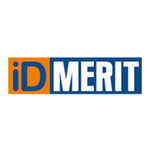TechnologyCounter provides genuine, unbiased real user reviews to help buyers make informed decisions. We may earn a referral fee when you purchase through our links, at no extra cost to you.
List of 15 Best Identity Verification Software
Showing 1 - 15 of 23 productsSpringVerify is a rapid, precise and trustworthy background verification solution that utilizes intelligent technology to streamline repetitive responsibilities like gathering documents, tracking progress, communicating with candidates and more...Read SpringVerify Reviews
DocuSign CLM is a contract lifecycle management software that automates and streamlines the end-to-end contract management process. Specially designed for businesses of all sizes, this platform offers a user-friendly interface and secure digital work...Read DocuSign CLM Reviews
IDMerit is an innovative software company dedicated to providing advanced identity verification solutions. With a team of experts technology, IDMerit offers a seamless and secure way to verify identities and prevent fraud. From financial institutions...Read IDMerit Reviews
TokenofTrust is a software that is changing the way trust is established and maintained in the digital world. This powerful tool allows individuals and businesses to securely and seamlessly verify the authenticity of their online interactions, provid...Read TokenofTrust Reviews
Ondato is a solution for all your identity verification needs. With its advanced features and user-friendly interface, Ondato streamlines the process of verifying individuals and businesses, providing fast and accurate results. Say goodbye to traditi...Read Ondato Reviews
Trulioo is a leading global identity verification company that provides innovative and secure solutions to businesses and organizations worldwide. With a mission to create a more secure and inclusive digital world, Trulioo empowers companies to verif...Read Trulioo Reviews
Onfido is revolutionizing the way businesses verify identities and authenticate users. With a seamless is a process, Onfido provides secure identity verification solutions for businesses of all sizes. By using advanced technology and innovative metho...Read Onfido Reviews
Sumsub is a identity verification and compliance platform designed to streamline KYC and AML processes for businesses around the world. With its advanced technology and innovative solutions, Sumsub offers a secure is a way to verify the identity of c...Read Sumsub Reviews
SEON AML is a and innovative software designed to revolutionize the way businesses prevent and detect money laundering. With its advanced features and intelligent algorithms, SEON AML provides a reliable is a solution to combat financial crimes and e...Read SEON AML Reviews
SheerID is a identity verification platform that helps businesses ensure that only eligible customers can access exclusive offers and discounts. With its reliable is a verification process, SheerID allows companies to provide personalized experiences...Read SheerID Reviews
IDfy is a state-of-the-art identity verification software that streamlines the process of authenticating identification documents. With advanced features, IDfy ensures accuracy and efficiency in verifying identity for a variety of purposes. With its...Read IDfy Reviews
Pipl is an innovative software that revolutionizes the way we search for information online. With powerful algorithms technology, Pipl goes beyond traditional search engines to provide accurate and extensive results on individuals. Its the ultimate t...Read pipl Reviews
Shufti Pro is an advanced software that utilizes the latest technology to provide unparalleled identity verification and fraud prevention solutions. With its secure platform, it helps businesses worldwide to streamline their customer onboarding proce...Read Shufti Pro Reviews
Jumio is a platform that transforms mobile identity verification and authentication through innovative and secure solutions. With advanced technology and unparalleled accuracy, Jumio is redefining how organizations and businesses can confidently and...Read Jumio Reviews
RECOGNITO is a facial recognition software providing high accuracy, speed, and security for user authentication. Ideal for businesses of all sizes, it seamlessly integrates with existing systems for enhanced safety and efficiency...Read RECOGNITO Reviews
- What Is Identity Verification Software?
- Top Reasons Why Businesses Need Identity Verification Software?
- What Are the Top Key Features of Identity Verification Software?
- What Are the Top Benefits of Identity Verification Software?
- What Are the Steps to Choose the Right Identity Verification Software?
- What Are the Types of Identity Verification Software for Different Industries?
- What Are the Technology Trends for Best Identity Verification Software?
- What Are the Deployment Options for Identity Verification Software?
What Is Identity Verification Software?
Identity verification software is a technological tool employed for the purpose of authenticating an individual's identification. Organizations frequently employ this method to authenticate the identity of individuals seeking access to their services, such as a banking website or online marketplace, in order to verify their claimed identity.
The software operates by enabling individuals to input relevant information, which is subsequently utilized to verify their identity by comparison with a reliable source, such as official identification documents provided by the government, or by implementing multi-factor authentication methods.
The software algorithm is designed to identify and extract specific personal information such as name, address, date of birth, and other relevant biographical data elements, which can then be employed for the purpose of verifying an individual's identity.
The implementation of ID verification software enables organizations to mitigate the potential risks of fraudulent activities and related concerns, thereby enhancing the overall security of their online services.
Top Reasons Why Businesses Need Identity Verification Software?
1. Improved customer experience – Identity verification software plays a crucial role in facilitating a secure and streamlined customer onboarding procedure, offering customers a prompt, uncomplicated, and protected means to authenticate their identity.
2. Reduced fraud – Through the real-time verification of consumer identities, organizations have the ability to mitigate the frequency of fraudulent acts, thereby safeguarding both customers and enterprises from potential financial losses.
3. Minimized manual reviews – This software allows organizations to automate the procedure of verifying individuals' identities, resulting in a reduced need for manual checks. Consequently, this technology enables enterprises to save both time and costs.
4. Regulatory compliance – Businesses are obligated to adhere to a variety of rules and regulations pertaining to data protection and KYC (Know Your Customer) compliance. To fulfill these obligations, the utilization of ID verification software proves beneficial.
5. Enhanced security – ID checking software enhances the security of transactions by employing encryption techniques to protect customer data, providing an additional degree of protection.
6. Improved customer trust – The implementation of the best ID verification software enhances client confidence, hence fostering positive online interactions.
7. Improved customer loyalty – Customers who have been verified are more inclined to engage in repeat commerce, leading to a higher level of customer loyalty.
8. Communication with customers – It enables organizations to establish successful communication with consumers by verifying their identity, thereby granting them access to secure sites and services.
9. Prevent identity theft – It serves as a crucial safeguard against fraudulent activities by thwarting the use of counterfeit identities, thereby fortifying the security measures in place to protect individuals' personal information and financial assets.
10. Data protection – Identity check software plays a crucial role in safeguarding firms by establishing a robust system that grants access to critical company data exclusively to confirmed clients.
11. Enhanced customer experience – Identity proofing software offers users an efficient and safe method for accessing their accounts.
12. Automatically updating databases – Identity verification platforms play a crucial role in enabling organizations to maintain accurate and up-to-date client information, which can be readily and securely accessed.
13. Easily scales with businesses – The top Identity verification software plays a crucial role in enabling organizations to maintain accurate and up-to-date client information, which can be readily and securely accessed.
14. Deterring data breaches – Identification verification software serves a crucial role in ensuring the security of sensitive client data through the implementation of safeguards that restrict access only to verified clients. The implementation of a proactive approach effectively acts as a deterrent against illegal access by hackers, therefore reducing the likelihood of compromising vital consumer information.
15. Prevent unauthorized access – Identification verification software has the capacity to facilitate businesses in swiftly and effortlessly confirming the identification of their consumers. This serves the purpose of allowing only genuine customers to gain access to a company's data and services.
What Are the Top Key Features of Identity Verification Software?
The top key features of identity verification software include:
1. Biometric Authentication: Biometric authentication allows users to securely authenticate by using their unique biological characteristics such as fingerprints, retinas, or voice prints.
2. Multi-Factor Authentication: Multi-factor authentication verifies a user’s identity using a combination of multiple factors such as passwords, PINs, security questions, or OTPs.
3. Know Your Customer (KYC): KYC is an identity verification process that checks the provided information for accuracy and verifies it with reliable sources like passports, driver's licenses, or government IDs.
4. Document Verification: Document identity authentication software is the process of confirming the authenticity of a document to verify the identity of the holder. It helps to ensure that the documents used for establishing identity are genuine.
5. Facial Recognition: Facial Recognition uses a person's facial features to recognize and verify identities. It is increasingly being used as a part of identity verification solutions.
6. Amplified Data and Analytics: Amplified data and analytics provide an improved level of identity verification accuracy by using artificial intelligence (AI) to analyze data from multiple sources.
7. Address Verification: Address verification checks the accuracy of a user's residential address and helps to protect the organization from identity fraud.
8. Data Encryption: Data encryption secures the identity data from unauthorized access and ensures that the data is safe and secure from cyber-attacks.
What Are the Top Benefits of Identity Verification Software?
1. Increased Security: The identity proofing platform enhances the security measures of an organization by validating personal or sensitive data prior to allowing access. This measure aids in mitigating security vulnerabilities associated with fraudulent activities and identity theft.
2. Improved Authentication: ID validation software enables enterprises to efficiently and precisely authenticate identity-related information by validating various details, including but not limited to names, addresses, phone numbers, and email addresses.
3. Reduced Costs: It plays a crucial role in mitigating the need for labor-intensive Identity validation processes, hence yielding cost reductions associated with human processing.
4. Easy to Maintain: Numerous digital identity verification software solutions exhibit a high degree of ease in their deployment, maintenance, and updating processes, rendering them a financially prudent option for corporate entities.
5. Streamlined Processes: The utilization of top identity verification software has the potential to streamline and expedite the process of Identity, hence facilitating enterprises in the prompt and efficient handling of requests.
6. Enhanced User Experience: IDauthentication software plays a pivotal role in enhancing the customer experience by mitigating the temporal and cognitive burdens associated with the verification of identity information.
7. Strengthened Data Protection: Identity verification software enhances an organization's data protection protocols by guaranteeing adherence to industry norms and standards pertaining to identity verification and authentication.
What Are the Steps to Choose the Right Identity Verification Software?
1. Determine what type of identity verification is required: The selection of an acceptable identity verification method for a business is contingent upon the intricacy of its procedures and services. It is imperative to assess the requisite level of identity verification in order to safeguard the interests of the business and its clientele.
2. Identify the type of verification services: A variety of identity verification services are currently accessible, encompassing biometric authentication, identity authentication, background checks, age verification, and other related methods.
The appropriateness of various verifications may vary depending on the nature of the business and the services it provides.
3. Determine the budget for identity verification: Various best id verification software offer a diverse array of price structures and packages that are specifically designed to accommodate the financial constraints of enterprises.
It is imperative to establish a budget for the selected verification process and to do a comprehensive analysis of the available alternatives.
4. Assess identity verification provider credentials and reputation: The selection of an identity verification company should prioritize those with a reputable standing within the business, together with a demonstrable history of satisfying consumer needs.
Evaluating the qualifications of the personnel employed by the service provider, as well as scrutinizing the security protocols implemented to safeguard customer data, holds significant significance.
5. Consider customer experience: When making a decision about the selection of ID checking software, it is crucial to opt for a provider that is capable of providing a customer experience that is both secure and easy. The service provider ought to provide a user-friendly interface, concise instructions, and efficient customer support.
6. Determine implementation timeline and cost: It is imperative to take into account the financial implications and projected duration associated with the implementation of the selected identity verification system.
The service supplier should possess the capability to furnish a comprehensive estimation of costs, along with a projected schedule for the execution of the project.
7. Review security measures: When selecting an identification verification software provider, it is imperative to prioritize security as a fundamental factor. One should take into account the security measures used by the service provider, including but not limited to encryption, multi-factor authentication, data storage protection, regular audits, and other relevant safeguards.
8. Perform a test: It is advisable for organizations to conduct comprehensive testing procedures to ascertain the efficacy and accuracy of the identity verification service prior to its complete deployment.
Tests should encompass the evaluation of the secure transmission and storage of client data, the usability of the process, and the reliability of the service in terms of uptime.
9. Read customer and expert reviews: To assess the usability, reliability, and quality of customer service offered by a supplier, organizations are advised to consult consumer and expert reviews. This will assist the organization in making a well-informed decision.
What Are the Types of Identity Verification Software for Different Industries?
In many businesses, there exists a range of identity verification software options catering to diverse needs.
1. Biometric Authentication: This software employs physiological or behavioral attributes for user authentication and is frequently employed in government and financial sectors.
2. Knowledge-based Authentication: This particular software necessitates users to authenticate their identity by responding to inquiries, such as confidential phrases or challenge questions. This form of authentication is frequently employed within the domains of banking, insurance, telecommunications, and healthcare.
3. Digital Identity Verification: This software utilizes digital identification documents, such as passports and driver's licenses, for the purpose of user verification. The utilization of this technology is prevalent in the domains of electronic commerce, healthcare, and financial services.
4. Personal Information Verification: This particular form of best identity verification software necessitates users to authenticate their identity by providing personal information. The information required encompasses the individual's complete name, date of birth, and residential address.
Identity verification platforms find frequent applications within the realms of government and financial services.
5. Online Identity Verification: The digital identity verification software in question employs a combination of offline and online components to verify the identities of users. The verification process may encompass the utilization of email and text message confirmations, as well as the presentation of identification cards and the verification of bank account details.
The utilization of this technology is prevalent within the domains of electronic commerce, banking, and insurance.
What Are the Technology Trends for Best Identity Verification Software?
The advancements in technology have led to rapid evolution in the field of identity verification software, particularly in terms of the most effective trends. Biometric data, facial recognition, artificial intelligence, and blockchain technology have emerged as prominent developments in recent times.
Biometric data refers to the information obtained from an individual's physical characteristics, including but not limited to fingerprints, speech patterns, and iris scans. The utilization of biometric data serves the purpose of securely identifying and authenticating persons. Facial recognition technology represents a sophisticated iteration of biometric data analysis.
Facial pattern recognition algorithms are employed to discern and authenticate individuals. The utilization of artificial intelligence (AI) has facilitated the advancement of ID checking software, leading to enhanced accuracy.
This progress has been achieved through the integration of techniques such as natural language processing (NLP) and machine learning. These algorithms employ automated techniques to identify people by examining trends in their activities, such as their typing speed or the times at which they log in.
In recent times, the utilization of blockchain technology has emerged as a means to provide a robust framework for ensuring the integrity of identity verification processes. The technology known as blockchain is a decentralized system for storing data that ensures its security and immutability. It is widely utilized in various sectors, including finance and healthcare.
What Are the Deployment Options for Identity Verification Software?
The deployment options for identity verification software can exhibit variability contingent upon the specific type of software being considered. However, it is customary for common alternatives to encompass:
1) Cloud Deployment: This deployment strategy involves the execution of the identity verification program within an external cloud infrastructure. The aforementioned approach diminishes the necessity for infrastructure and maintenance; yet, it is necessary to assess the security measures employed in safeguarding the data.
2) SaaS (Software-as-a-Service) Deployment: This deployment model entails the utilization of identity verification platforms as a service, commonly delivered by a third-party source. This particular deployment method often necessitates minimal configuration and provides advantages in terms of scalability and adaptability.
3) On-Premise Deployment: This deployment model entails the execution of the best identity verification software on the servers owned by the organization.
The aforementioned alternative is deemed to be the most secure choice, as it ensures that the data is confined within the organization's internal environment. Additionally, the setup and maintenance of the program necessitate substantial IT resources.
4) Hybrid Deployment: This deployment approach involves the integration of both cloud-based and on-premise deployment methods for the purpose of implementing top identity verification software. This particular deployment model offers the advantages of cloud-based flexibility along with the security features often associated with an on-premise solution.















